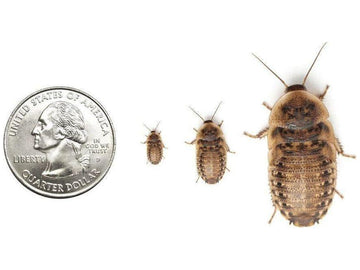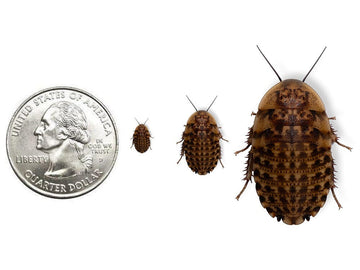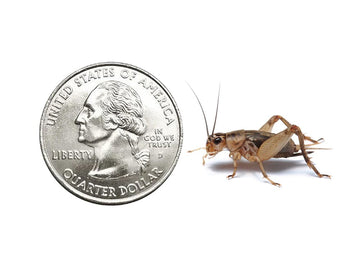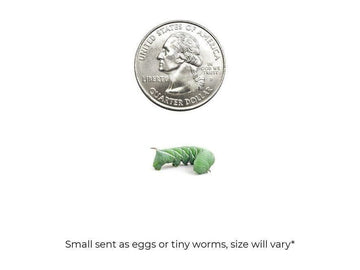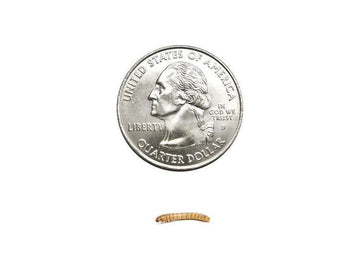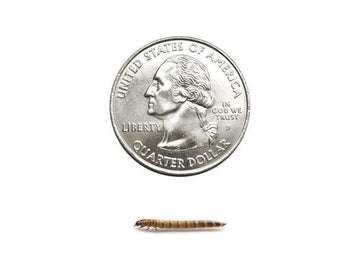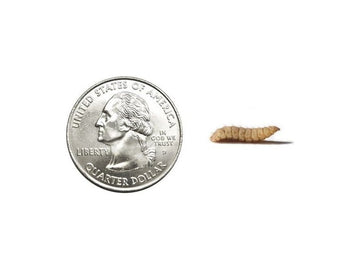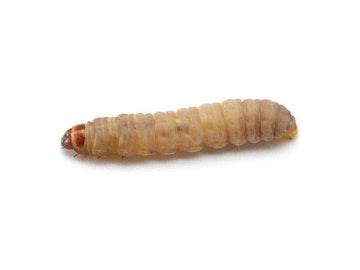There are many things that help make a bioactive terrarium work, but one of the most important factors is the terrarium’s CUC, or Clean Up Crew. The CUC is composed of beneficial insects, fungi, bacteria, and other microfauna which work to help re-create the renewing processes found in nature. A bioactive terrarium’s CUC plays a critical role in consuming feces, mold, and other types of waste while also aerating the substrate and keeping pathogen populations in check.
Most people think of springtails and isopods when they think of CUC, but the truth is that a successful bioactive requires many different types of organisms to create a thriving micro-ecosystem. One way you can diversify your bioactive’s CUC is by adding dubia roaches, Blaptica dubia.
Do Dubia Roaches Make Good CUC?
Although dubia roaches are best known for their popularity as feeder insects, they can also make an effective addition to your CUC.
Because of their popularity as feeders, dubia roaches are easy to acquire and inexpensive, making them a convenient way to diversify your CUC. The only exception is if you live in Florida or Hawaii, as they are illegal in these states.
Dubia roaches are unlikely to become a pest as part of your CUC. They’re very quiet, and they’re also very poor climbers — they can’t climb glass or smooth plastic, so escape is unlikely.
When their needs are met, dubia roaches reproduce quickly, which can cause some to be concerned about the potential for overwhelming a bioactive setup. Like other CUC however, you can expect the population to eventually balance itself. While waiting for balance to be established, it’s a good idea to make sure that you have other members of your CUC that can help deal with dead insects, like isopods and buffalo beetles.
How Do Dubia Roaches Benefit Your Bioactive?
In their natural habitat, dubia roaches act as part of their local ecosystem’s natural “clean up crew” by assisting with the decomposition of fallen leaves, rotting wood, dead animals, fecal matter, and other organic wastes. Decomposition is critical to the process of maintaining healthy soil. Dubia roaches further facilitate healthy soil by burrowing, which aerates the soil and helps prevent stagnation.
Within a captive context, dubia roaches are additionally useful because they help consume uneaten food left by the enclosure’s primary occupant, reducing potential for mold growth.
Dubia roaches have few negative points, but there are a few things to keep in mind about using them as CUC:
- Dubia roaches may chew on your live plants if they don’t have enough to eat. They’re unlikely to bother your pet if they get hungry, but the chewing will damage your plants, and chewing on the wrong plants can potentially make them toxic.
- Many insect-eating pets will enthusiastically hunt down and devour a dubia roach on sight. Fortunately, dubia roaches are generally very good at staying hidden, and they’re also nocturnal, which helps protect them from diurnal predators. However, predation potential can make it difficult to maintain a population of dubia roaches among your CUC.
- Due to their terrestrial nature and lack of skill in regard to climbing, dubia roaches are likely to make better CUC for terrestrial rather than arboreal setups.
How to Care for Dubia Roaches as CUC
Dubia roaches are quite versatile, and actually tolerate lower humidity levels than many other roach species. That being said, they do best in warm, humid environments with plenty of wood and leaves to hide under, since they’re native to the tropical forests of Central and South America. This means that they’re most appropriate to use as part of the CUC for a temperate or tropical setup.
Provide your roaches with humidity, warmth, plenty of leaf litter and a cork flat or two to hide under, and they’ll do the rest!
Do You Need to Feed the Dubia Roaches in Your CUC?
Although dubia roaches can live off of eating leaf litter, wood, leftover pet food, and feces, it’s best to also provide them with CUC-specific food pellets or gel cubes to round out their nutrition. Pieces of fruit are also appreciated, and make a good source of extra moisture.
Although bioactive setups are often promoted for the benefit of not having to clean up animal feces, this claim is misleading and potentially harmful to your pet’s health. Although CUC insects like dubia roaches can and will eat feces, it’s best practice to remove fecal matter as soon as it is noticed, as this helps prevent your pet from getting re-infected with parasites in the event that they eat a member of their CUC.


